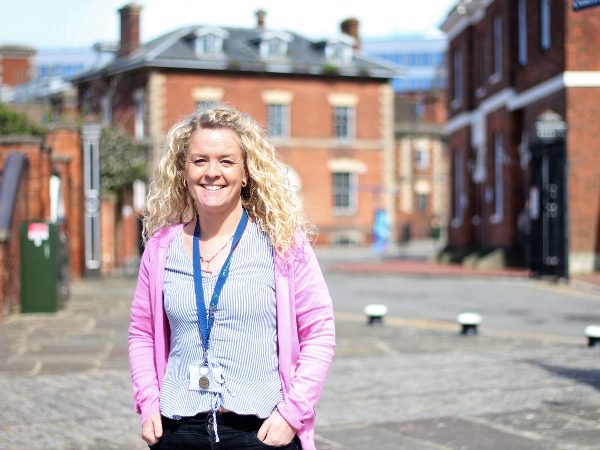
Bethany Dando, member of the Community Team at YG, tells us about an exciting new partnership with the Seabin Project and their Global Ambassador Program.
10 May 2022
“YG have partnered with the Global Ambassador Program who work with organisations that are dedicated to solving the problem of marine litter. Since the beginning of April YG have been taking part in an exciting new project, the seabin! This is the first bin ever installed in the Victoria Basin Marina, Gloucester docks. With our new offices located just around the corner we are in a perfect spot to help empty and analyse the data collected each morning.
“The aim of the project is to use the data generated by the seabin to inform, teach and empower the public to take action in the resolution of marine litter. Each day the data is collected, analysed and sent off to the Global Ambassador Program to be analysed in further detail and collated with other seabin data from around the world
What is a Sea Bin?
“A seabin is a floating rubbish bin that sits on top of the water, the bin has a sucking mechanism that draws in water from a huge 50 metre radius. This water is passed through the bin and the net inside is able to catch anything that is 2mm and over, whether it be marine life, plastic or natural debris. The water is circulated through the action of a submersible water pump and as it passes through, the net can catch and hold materials up to a whopping 20kg.
Our Daily Routine.
“Each morning two of us head down to the docks and equip ourselves with a life jacket, litter picker, sieve, brush and bucket. Before emptying the sea bin, the power must be turned off at the nearby switch, once this important step is completed, the tools allow us to safely pull out the net and empty the contents into a bucket, using the brush to clean the bucket as we go. The second part of this process uses a different range of tools, measuring scales, tarpaulin, signs saying we are volunteering, gloves and our analysis sheets. The bucket is weighed to get a total measurement each day and the contents of the seabin is poured out onto the tarpaulin. Using our gloves we filter through, separating the natural debris to the rubbish. The rubbish is gently placed onto gridded sheets and pictures are taken, meanwhile notes are written down of each item we’ve found and how many of that item there are. The natural debris is taken to our YG compost bin, anything recyclable is recycled and the rest is thrown in the bin. Any data we’ve collected, including photos and our data sheets are sent to the Global Ambassador Program to be analysed in further detail and collated with other seabin data around the world!. Data collection generated by the seabin is used to inform, teach and empower the public to take action in the resolution of marine litter.
Did you know…There are 860 se bins located in seas, marines, ports and our waters around the world, with only approximately 15 being in the UK.
- There has been a rough total of 3,612 kg materials collected from the seabins worldwide.
- Over the past couple of weeks the amount of rubbish has decreased, resulting in us finding some marine life, such as a glass eel, shrimp and fish.
- The next closest seabin is being located in Reading.
- 24% of what we at YG have collected is litter, with 76% being natural debris.
What can you do?
“Simply putting your rubbish into the bin will create a huge ripple effect of limiting litter found in our waters. Volunteer? If you’re passionate about our environment and interested in being part of an exciting project then get in contact with us. This is an amazing opportunity to be part of something huge. We’ve had many families and people from the public approach us whilst we’ve been doing emptying the bin and the feedback has been incredible, knowing how many people appreciate the work we’ve been doing is great. We would love to involve more young people and encourage others think about how they can make a difference to the litter in our oceans. We have seen the levels of litter drop over the last month and it’s be fascinating and inspiring to be part of this project. If you would like to find out more or get involved then please contact us.”

You may also like...
Redesigning Graphic House: Creating the safe spaces young people deserve

Meet Jamie – Learning, growing, and giving back through Youth Work

From Probable Mental Illness to Wellness

Young Gloucestershire’s ED and I journey

